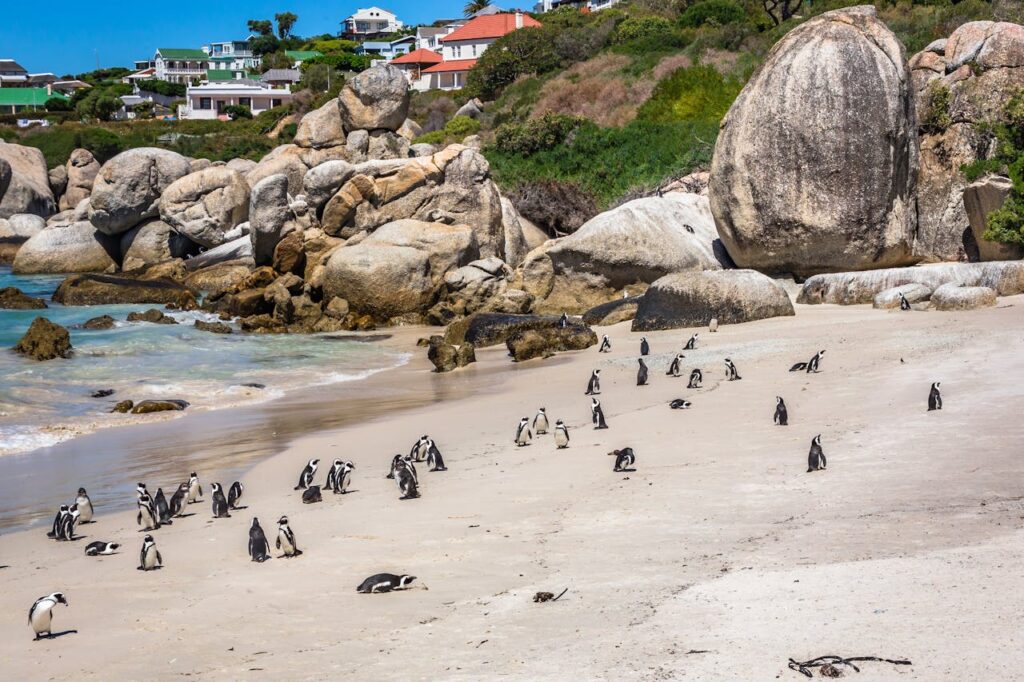Disclosure: This site may contain affiliate links. If you make a purchase through these links, I may receive a commission at no additional cost to you. However, all opinions are my own.
Antarctica is potentially the most promising region for hosting providers’ data centers and data processing. The idea is simple: low temperatures reduce server cooling costs, and the entire infrastructure will run like clockwork.
In Antarctica, where the ice desert reigns and only the hardiest of creatures live, penguins are facing a new threat: a ban on internet access. Yes, you heard right! While we enjoy high-speed Wi-Fi and endless streams of content, our feathered friends remain in an information vacuum.
Penguins Against Internet Censorship
Imagine a penguin who dreams of sharing his adventures in the ice kingdom via Instagram, but can’t upload a single photo. Or a penguin who wants to know the latest news about global warming, but instead receives only cold wind and silence.
Why do penguins need the internet?
- Sharing experiences: Penguins could share tips on surviving the harsh conditions of Antarctica. How to find the best fish? How to stay warm in icy water? The internet could be a platform for such discussions.
- Social media: Social media would help penguins make new friends and organize meet-ups. Who knows, maybe penguins from different colonies might want to team up to hunt krill together?
- Education: Access to educational resources could help penguins better understand climate change and its impact on the ecosystem. With online courses, they could become real environmental activists!

Did you know what the flag of Antarctica looks like?
Horizontal stripes of navy and white represent the long nights and days at Antarctica’s extreme latitude. In the center, a lone white peak erupts from a field of snow and ice, echoing those of the bergs, mountains, and pressure ridges that define the Antarctic horizon. The long shadow it casts forms the shape of a compass arrow pointed south. Together, the two center shapes create a diamond, symbolizing the hope that Antarctica will continue to be a center of peace, discovery, and cooperation for generations to come.
Legislative barriers
But, unfortunately, Antarctica is protected by international treaties that limit access to the Internet. For example, according to the registration rules, the domain in the .aq zone is delegated only to state organizations engaged in any activity in Antarctica, the state must be a party to the International Antarctic Treaty of 1959, or other organizations that have a “permanent presence” on the continent (buildings or regular expeditions in the “season”), which makes creating sites for penguins almost impossible. Penguins have buildings, but they were not invited to the treaty. The administrator of the .aq domain is Peter Mott from New Zealand. It’s time to ask him when the distribution of media resources will be transferred to the indigenous population of Antarctica?
Recently, activist movements have begun to emerge among penguins. Groups such as “Penguins for Free Internet” and “Ice Floes Without Censorship” have begun organizing peaceful rallies on the ice. Their main demand is access to the Internet for everyone, regardless of species and location.
One of the main slogans of the protesters: “Ice is our home, the Internet is our right!” The penguins argue that they need to be aware of the latest news and events in the world in order to better protect their territory from curious scientists and tourists.

How to fix it?
- Penguin Rights Lobbying: Create an international organization that will represent penguins on internet access issues.
- Create an Antarctic network: Develop a special network for penguins that will allow them to share information and content without having to leave their home ice.
- Education Programs: Launch programs that will teach penguins basic internet literacy so that they can safely use new technologies.
Conclusion: the future of Antarctica
In summary, while we continue to enjoy the internet, let’s not forget about the penguins who remain in the shadows of the digital age. Perhaps it’s time to raise the issue of penguins’ rights to access the internet and make Antarctica a more technologically advanced place for all its inhabitants!
So if you see a penguin with a phone on the ice, know that it’s not just an animal, it’s a real fighter for digital justice!




